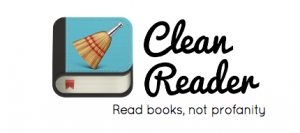 By now many readers and fans of free speech have likely heard about the app called Clean Reader, which applies a filter to users’ ebooks and replaces certain potentially offensive words with supposedly milder terms. While many book lovers have understandably reacted with horror and outrage, the hard truth is that individuals can and do modify all sorts of content that they own. The most troubling aspect of Clean Reader, however, is its potential appeal to government officials overseeing schools and libraries.
By now many readers and fans of free speech have likely heard about the app called Clean Reader, which applies a filter to users’ ebooks and replaces certain potentially offensive words with supposedly milder terms. While many book lovers have understandably reacted with horror and outrage, the hard truth is that individuals can and do modify all sorts of content that they own. The most troubling aspect of Clean Reader, however, is its potential appeal to government officials overseeing schools and libraries.
As we’ve seen all too often, some administrators and elected officials are quite willing to restrict or completely remove books from classrooms or library shelves because of a few select words. With the advent of Clean Reader and any similar apps that may follow, it’s not far-fetched to imagine those same people may decide that simply requiring students to read the filtered version of an ebook is an acceptable “compromise.” If Delaware’s Cape Henlopen School Board had this app at its disposal last summer, for instance, it might not have suppressed an entire reading list in a dispute over profanity–but students still would have read books that were not quite what the authors wrote. There’s nothing to stop individuals from modifying books they own, but when government imposes that modification it becomes unacceptable censorship.
In its indiscriminate and unimaginative blocking of words that can be perfectly innocent in some cases, Clean Reader shares many similarities with the Internet filters that schools and libraries receiving certain federal funds are already required to deploy on their networks. Romance blogger Jennifer Porter found that the app turned chicken breasts into chicken chests, for instance. Then there are the substitutions that are simply puzzling: ”pee” stands in for “piss” and “jerk” for “bastard.” Finally, all possible terms for male and female genitalia are respectively subsumed under “groin” and “bottom”–a neat contradiction of the old canard that it is profanity users who suffer from a lack of imagination. And these are only the mostly sex-related terms that Porter managed to uncover with an unscientific survey of a few romance novels through the app’s three filter levels: Clean, Cleaner, and Squeaky Clean. Clean Reader also reportedly can be set to block “references to…deities” and “some hurtful racial terms.”
Under pressure from irate authors and readers last week, Clean Reader’s founders announced that they would no longer sell books directly through the app. Since the filter is just an overlay of sorts that doesn’t actually modify an ebook file, it does not technically violate copyright laws, but many authors were nevertheless upset that Clean Reader was profiting by selling their books to be read in a censored state. On the other hand Cory Doctorow, whose own book Little Brother was last year banned as a summer reading book in Pensacola, offered a well-considered defense of individuals’ right to choose what they will or will not read:
It’s precisely because I disagree with Clean Reader’s users that I have no business prohibiting them from choosing how they read the copies of my books that they lawfully acquire with equipment they choose. It’s easy to be a free speech advocate when you agree with the speaker. Unless you support speech you find objectionable, you don’t support free speech at all.
Make no mistake, this is a free speech issue. The right to free expression includes the right to decide whom you listen to, and how. Free speech is not compelled listening.
Doctorow is absolutely correct about that. While many readers and authors find the idea of automated find-and-replace censorship downright distasteful, people who do want that reading experience are welcome to it. The real threat is that someone in a position of power in school or local government might cross the line of individual choice and decide that the watered-down versions of books are “good enough” for everyone.
Help support CBLDF’s important First Amendment work in 2015 by visiting the Rewards Zone, making a donation, or becoming a member of CBLDF!
Contributing Editor Maren Williams is a reference librarian who enjoys free speech and rescue dogs.